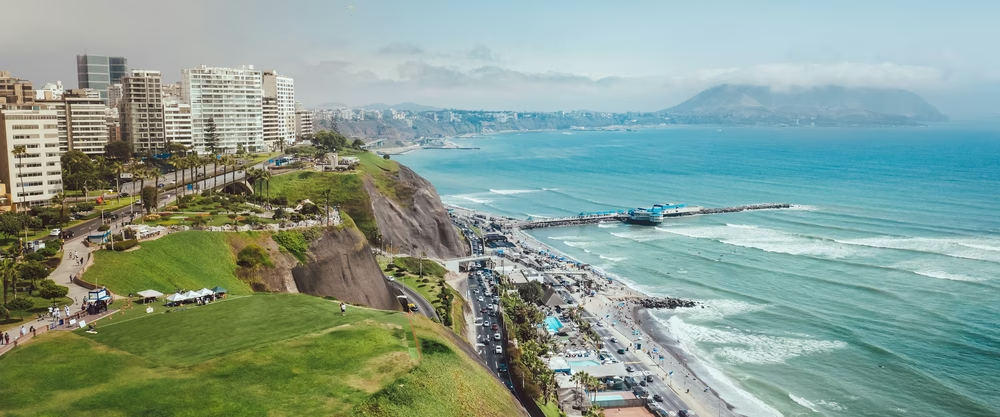

Thinking about having a unique university experience in Latin America? Then studying in Peru might be just the opportunity you're looking for! In this article, we’ll walk you through everything you need to know if you're considering doing your exchange in this fascinating Andean country, from the basic requirements for international students to the reasons why so many young people choose it as their destination to study. You'll also find plenty of ideas of what to see and do during your stay, so you can make the most of your time in a land rich in history, nature, and one of the most celebrated cuisines in the region.
Peru is ideal for students who want to combine their studies with adventure. Why? Because of its Incan heritage, breathtaking geography —ranging from the Amazon rainforest to the Andes—, friendly locals, and vibrant city life in places like Lima and Cusco turn everyday experiences into something special. On top of that, the living cost is generally affordable, and student life is both multicultural and full of variety.
There are loads of great cities in Peru for international students. Lima, the capital, is the main academic hotspot: it’s got top universities, loads of culture and a buzzing, diverse vibe. Then there’s Cusco, which is packed with history and super close to Machu Picchu. Life there’s a bit more chilled and you really get a feel for the Andean culture. Arequipa and Trujillo are also cracking choices, both with good unis, a slower pace of life, lovely old buildings and a lively student scene.
Here are some of the most common requirements for international students in Peru:
And a really important thing: most unis will want any documents issued abroad to be apostilled by La Haya. Plus, if the document isn’t in Spanish, you’ll need a certified translation.
One of the top reasons to choose Peru as your study destination is its culture. It’s a place where traditions and modern life blend naturally, where indigenous roots, colonial history, and contemporary vibes all mix together. From traditional festivals in small Andean villages to street art in Lima, there’s loads to take in.
What really catches the eye of international students is the sheer number of world-famous archaeological sites and historic landmarks. Living just a few hours from places like Machu Picchu, the Nazca Lines or the Chan Chan Citadel means you’ve got ancient history right on your doorstep. In fact, many university courses include trips or fieldwork linked to this incredible heritage.
Another great reason to study in Peru is gastronomy. Trying fresh ceviche by the coast or a steaming bowl of chicken broth up in the mountains is just part of the adventure. You’ll probably end up with a few new favourite dishes by the time you head home!
And if Spanish isn’t your first language, this is a great chance to learn or improve it. Being surrounded by Spanish speakers means you’ll pick it up naturally — in class, but also just chatting day to day. Plus, Peruvian Spanish is known for being clear and easy to understand, and Peruvians are generally super friendly and welcoming, which makes it easier to settle in.
Wondering what you can do while you're in Peru? You’re in for a proper treat — this country’s packed with unforgettable experiences. Thanks to its super diverse geography, you can go from the Pacific coast to the Amazon jungle or up into the Andes in just a few hours. Each region’s got its own vibe, which you’ll notice in the people, food and available activities.
If you’re the adventurous type, Peru’s wild nature will amaze you. There’s loads to do outdoors — you can go hiking the legendary Inca Trail, cycle through the Sacred Valley, visit high-altitude lakes in the Cordillera Blanca or go all in with rafting and rock climbing in places like Huaraz and Arequipa.
If you’re more into history, you’ll be surrounded by it everywhere you go. Think epic places like Machu Picchu, the mysterious Nazca Lines or ancient ruins in the north. Peru’s basically an open-air museum, you’ll find remnants of the Inca, Mochica and Chimú civilisations that’ll give you a real connection to the past.
And for the foodies, Peru is an absolute gem. It’s often named one of the best cuisines in the world, blending ingredients from the Andes, Amazon, and coast, with Spanish, African, Japanese, and Chinese influences thrown in. Don’t miss a fresh ceviche in Lima, a juane amazónico wrapped in bijao leaf, a good old pachamanca or la causa rellena from the highlands. Honestly, just eating your way through Peru is a whole experience in itself.
Find the ideal accommodation in your desired location